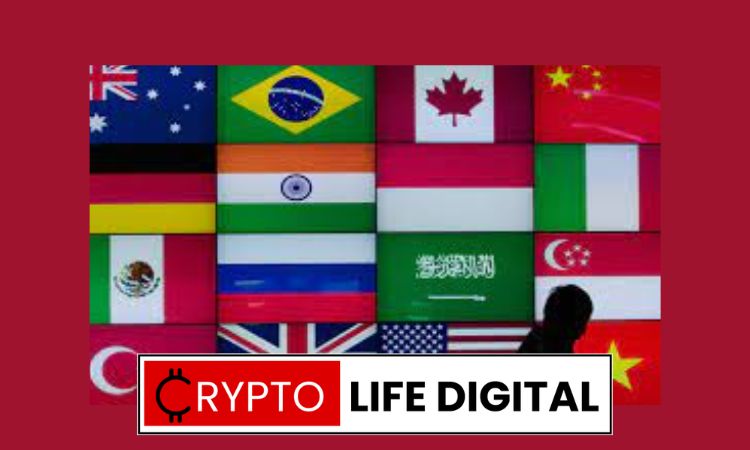What Is The State Of Crypto Regulations Around The World?

Crypto regulations have been a topic of intense debate and discussion since the inception of cryptocurrencies. Governments and regulators around the world have been grappling with the challenge of creating a regulatory framework that can effectively govern this new form of digital assets.
The rise of cryptocurrencies and blockchain technology has created a new world of possibilities and challenges for regulators around the world. While some countries have embraced cryptocurrencies and blockchain technology, others have taken a more cautious approach. In this article, we will explore the state of crypto regulations around the world.
Read Also: Crypto derivatives: what are they and how do they work?
United States
The United States is one of the most important players in the crypto space. The country has been at the forefront of innovation in the crypto industry and has attracted some of the biggest players in the industry. However, the regulatory framework for cryptocurrencies in the United States is still evolving.
The United States Securities and Exchange Commission (SEC) has been actively involved in regulating the crypto industry. The SEC has taken a strict stance on ICOs, considering them to be securities and therefore subject to federal securities laws. The SEC has also been actively pursuing enforcement actions against fraudulent ICOs and other bad actors in the industry.
In addition to the SEC, other agencies such as the Commodity Futures Trading Commission (CFTC) and the Financial Crimes Enforcement Network (FinCEN) have also been involved in regulating the crypto industry. The CFTC has taken the position that cryptocurrencies are commodities and subject to the same regulations as other commodities.
Europe
The European Union (EU) has been working to create a regulatory framework for cryptocurrencies. The EU has taken a more cautious approach to cryptocurrencies compared to the United States, with regulators expressing concerns about the potential risks associated with cryptocurrencies.
In January 2020, the EU introduced the Fifth Anti-Money Laundering Directive (5AMLD), which brought cryptocurrencies under the scope of EU anti-money laundering regulations. The directive requires crypto exchanges and other service providers to register with their national authorities and comply with know-your-customer (KYC) and anti-money laundering (AML) regulations.
Read Also: What Is The Future Of Central Bank Of Digital Currencies (CBDCs)
Switzerland is one of the most crypto-friendly countries in Europe. The country has a supportive regulatory framework for cryptocurrencies, and many crypto startups have chosen to set up their operations in Switzerland. The Swiss Financial Market Supervisory Authority (FINMA) has created a clear regulatory framework for cryptocurrencies, which has helped to attract crypto businesses to the country.
Asia
Asia has been a hotbed of activity in the crypto industry, with many of the biggest exchanges and blockchain startups located in the region. However, the regulatory framework for cryptocurrencies in Asia is still evolving.
China has taken a strict stance on cryptocurrencies, banning ICOs and shutting down crypto exchanges. However, the country has been exploring the potential of blockchain technology and has launched its own central bank digital currency (CBDC), known as the digital yuan.
Japan has been one of the most crypto-friendly countries in Asia. The country has created a regulatory framework for cryptocurrencies, which has helped to attract crypto businesses to the country. In 2017, Japan became the first country to regulate cryptocurrencies as a legal payment method.
South Korea has also been active in regulating the crypto industry. In 2018, the country introduced new regulations for crypto exchanges, requiring them to register with the Financial Services Commission (FSC) and comply with KYC and AML regulations.
Africa
Africa has seen a surge in interest in cryptocurrencies in recent years, with many startups and exchanges setting up operations in the region. However, the regulatory framework for cryptocurrencies in Africa is still in its infancy.
South Africa has been the most active country in regulating the crypto industry in Africa. In 2019, the South African Reserve Bank (SARB) introduced new regulations for crypto businesses, requiring them to register with the Financial Intelligence Centre and comply with AML and KYC regulations.
Nigeria
Nigeria is another African country that has seen a surge in interest in cryptocurrencies in recent years. However, the country’s regulatory framework for cryptocurrencies is still evolving.
In 2017, the Central Bank of Nigeria (CBN) issued circular warning banks and financial institutions in the country against transacting in cryptocurrencies. The CBN cited the risks associated with cryptocurrencies, including money laundering and terrorism financing.
In 2021, the CBN issued another circular banning banks and financial institutions from dealing with crypto exchanges. The ban has caused a lot of controversy in Nigeria, with many crypto enthusiasts and businesses criticizing the decision.
However, some states in Nigeria, such as Lagos State, have taken a more positive stance on cryptocurrencies. In 2021, the Lagos State Government announced plans to launch a digital currency, known as the Eko, which will be used to facilitate transactions within the state.
In conclusion, the regulatory framework for cryptocurrencies around the world is still evolving. While some countries have taken a positive stance on cryptocurrencies, others have taken a more cautious approach. The regulatory landscape for cryptocurrencies is complex and constantly evolving, and businesses and investors need to stay informed about the regulatory environment in the countries they operate in.
As the crypto industry continues to grow and mature, we will likely see more countries creating regulatory frameworks for cryptocurrencies. These regulations will play a crucial role in determining the future of the crypto industry and its ability to operate within the traditional financial system.
Follow us on Twitter, Facebook, Telegram, and Google News

Cryptolifedigital is a cryptocurrency blogger and analyst known for providing insightful analysis and commentary on the ever-changing digital currency landscape. With a keen eye for market trends and a deep understanding of blockchain technology, Cryptolifedigital helps readers navigate the complexities of the crypto world, making informed investment decisions. Whether you’re a seasoned investor or just starting out, Cryptolifedigital’s analysis offers valuable insights into the world of cryptocurrency.







